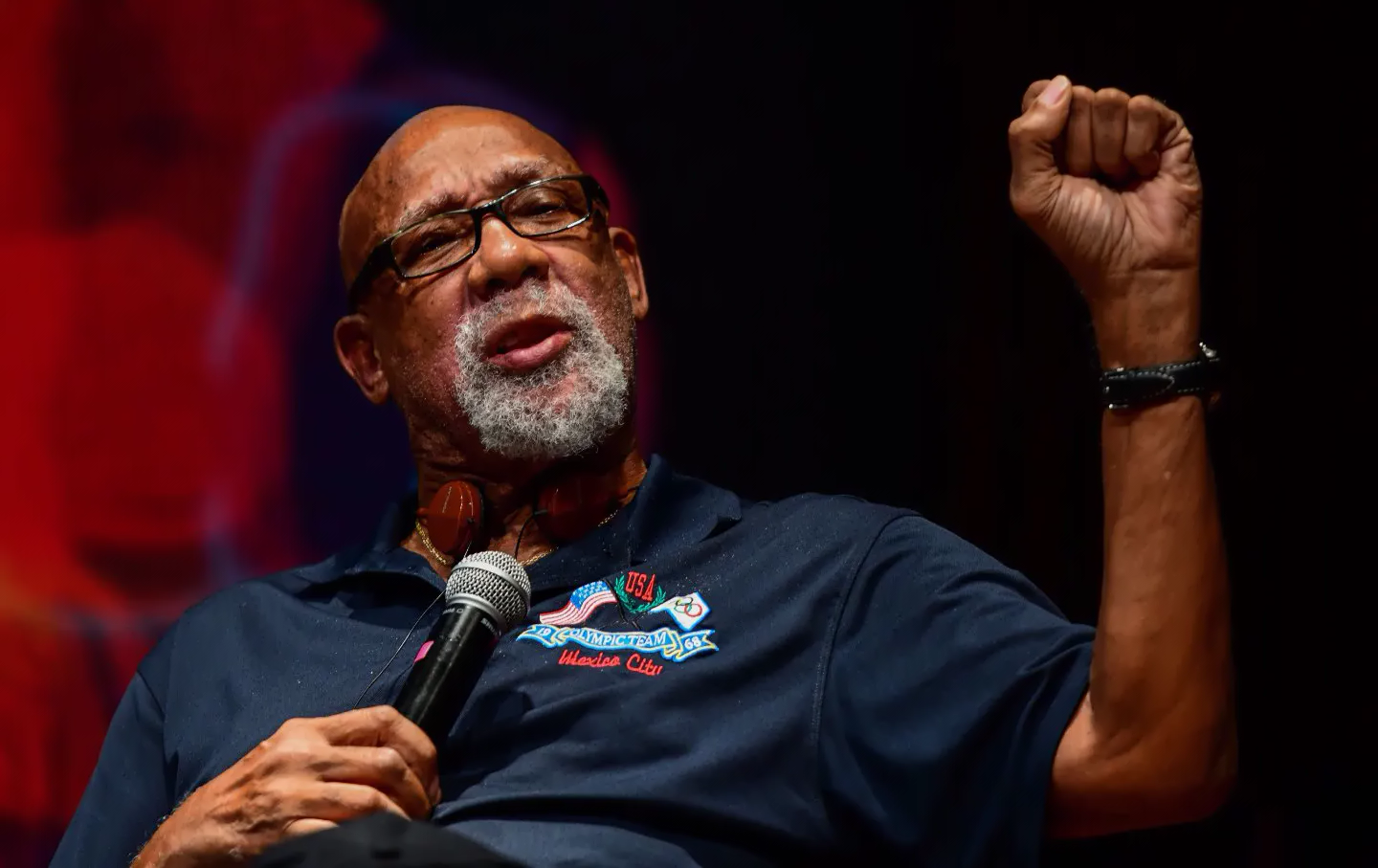At a time of global uprisings, the Olympic ban on political dissent is under renewed scrutiny.
As the winds of change whip through the world of sports, the International Olympic Committee (IOC) remains a windless desert full of dry-husk ideas that appear brittle amid today’s zeitgeist of principled athlete activism. While other sports leagues—like the National Women’s Soccer League—are making space for their athletes to express political dissent, the IOC is lagging behind, digging in its heels to argue that politics and the Olympics don’t mix.
But there is a burgeoning effort among Olympic athletes, and even some sports administrators, to loosen restrictions on athletes’ ability to engage in political protest. The moment is ripe to ditch the restrictive measure embedded in the Olympic Charter that bans political dissent. The IOC is living in the past. Politically minded Olympic athletes are rooted in the present and thinking about the future. They more than deserve space to protest injustice.
The Olympic Charter has long explicitly forbidden dissent. After John Carlos and Tommie Smith famously thrust their black-gloved fists into the Mexico City sky in 1968 for Black freedom and human rights, the IOC fashioned a rule to dissuade athletes from taking a similar stand. This takes the form of Rule 50 in today’s Olympic Charter: “No kind of demonstration or political, religious or racial propaganda is permitted in any Olympic sites, venues or other areas.”
In January, the IOC doubled down, issuing guidelines that delineated what it considers “protest,” rather than “political expression.” “Displaying any political messaging, including signs or armbands” is verboten, as are “gestures of a political nature, like a hand gesture or kneeling.” This suspiciously specific “non-exhaustive list” was an obvious response to two US athletes who had the temerity to make political statements on the medal stand at the 2019 Pan American Games: track athlete Gwen Berry, who raised a fist on the medal stand, and fencer Race Imboden, who took a knee.

